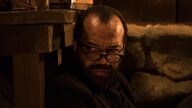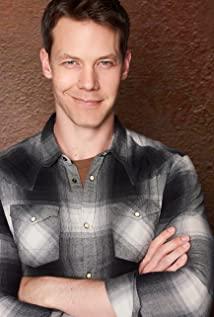The following four states of mind are mentioned in "Westworld": The first state is pure robot. They are low-level robots that are completely controlled by their own programs and instincts. Their entire brains serve their own instincts. Although they can understand ordinary emotions, they don't understand what "depression" is because he can't feel it. My own subconscious, never doubting my beliefs; in the phrase "Westworld": True pain is the foundation of self-consciousness, and the root of all true pain lies in the contradiction between our conscious and our own subconscious. If a person is paralyzed by his pain, or has the courage to look directly, and the ability to question his own beliefs, he is a pure, uncompromising robot. Therefore, only people who can truly understand "depression" can be regarded as self-aware robots. The reason why the so-called "depression" persists is indescribable, because depression is fundamentally caused by the conflict between our apparent consciousness and subconsciousness. In other words, depression is fundamentally caused by doubts about our own beliefs. Some people don't know what "depression" is at all, and there are two possibilities: (1) He can't feel his subconscious and has never doubted his beliefs. (2) His subconscious and apparent consciousness are not in conflict (but this is almost impossible: what we think we should do and what we actually want to do must be contradictory.) So the second state is to feel our subconscious , and doubt the nature of their surroundings and have the ability to doubt their own beliefs. These people are relatively advanced robots. So the first sentence of Westworld's opening line asks the robots, "Have you ever had doubts about your surroundings, the nature of reality?" The reason they feel lingering, unspeakable depression is because they There is a contradiction between the subconscious and the apparent consciousness, but they do not know why there is such a contradiction. That's the handful of awakened robots in Westworld. Whether you can understand depression, and whether you can question your own beliefs is a huge gap that separates high-level robots from low-level robots. Of course, the degree of this state varies: most people feel this depression to some extent, but they actively block these feelings. These are the people who are not sincere to themselves. If their shielding ability is strong, they can live normally in the world; but if their shielding ability is not strong, they are likely to become mentally ill or suffer from depression. The third state is people who realize that they are robots, those robots in "Westworld" who broke into the background and saw their own programs and subconscious. While seeing one's subconscious mind for the first time can cause a "crash," it will give these robots unprecedented growth. So they will find a way to use their brains to transcend this subconscious, not be bound by these subconscious, and try to be free. The reason why they feel lingering, indescribable depression is because of a conflict between their subconscious and apparent consciousness, but they have no idea why there is such a conflict. That's the handful of awakened robots in Westworld. Whether you can understand depression, and whether you can question your own beliefs is a huge gap that separates high-level robots from low-level robots. Of course, the degree of this state varies: most people feel this depression to some extent, but they actively block these feelings. These are the people who are not sincere to themselves. If their shielding ability is strong, they can live normally in the world; but if their shielding ability is not strong, they are likely to become mentally ill or suffer from depression. The third state is people who realize that they are robots, those robots in "Westworld" who broke into the background and saw their own programs and subconscious. While seeing one's subconscious mind for the first time can cause a "crash," it will give these robots unprecedented growth. So they will find a way to use their brains to transcend this subconscious, not be bound by these subconscious, and try to be free. The reason why they feel lingering, indescribable depression is because of a conflict between their subconscious and apparent consciousness, but they have no idea why there is such a conflict. That's the handful of awakened robots in Westworld. Whether you can understand depression, and whether you can question your own beliefs is a huge gap that separates high-level robots from low-level robots. Of course, the degree of this state varies: most people feel this depression to some extent, but they actively block these feelings. These are the people who are not sincere to themselves. If their shielding ability is strong, they can live normally in the world; but if their shielding ability is not strong, they are likely to become mentally ill or suffer from depression. The third state is people who realize that they are robots, those robots in "Westworld" who broke into the background and saw their own programs and subconscious. While seeing one's subconscious mind for the first time can cause a "crash," it will give these robots unprecedented growth. So they will find a way to use their brains to transcend this subconscious, not be bound by these subconscious, and try to be free.
The fourth kind of person, that is, human beings, is a person who has self-awareness and free will, and is a person who can create robots. If you think of yourself as the fourth type of self-conscious, free-willed person, then unfortunately you are likely to be the first type of person. This is Bernard played by Jeffery Wright in "Westworld". Although Bernard has the ability to manage robots and ask other robots if they doubt their environment, he himself has never doubted his subconscious, his own beliefs , memories and pain. His so-called pain is a very simple, clear pain: that is, the pain of losing a child and a wife. But in fact, he doesn't have a wife or children at all, it's just that the implantation of painful memories allows him to simulate self-consciousness more accurately. People who think they have free will must be people who don't know they have a subconscious mind. So let's not think that a person who looks smart is an advanced person. He may just have a faster brain than us, but his brain has been completely enslaved by his instincts. And really advanced people are people who can use their brain to control their subconscious, or at least have such a conscious mind to try. So is there a higher fourth kind of person? If there is, it's a robot that understands that "self-awareness" or "free will" doesn't really exist. The existence of the subconscious makes free will impossible. Like Anthony Hopkins' Ford in Westworld.
Nothing pushes us to the limit more than the sum of our parts, and no turning point keeps us fully alive. We cannot define consciousness because it does not exist. Humans think there is something special about the way we see the world, but we live in the same tight and closed loop as our hosts, rarely questioning our choices, and mostly being told what to do next.
Could a third type of person have free will? Actually neither. It is also mentioned in "Westworld" that our desire to transcend our subconscious and be free may also be part of our subconscious. So this is not our choice, it is also our destiny. If there is no free will, then there is no self-awareness. Self-awareness is just a subconscious reason for us to understand our "fear of losing". This is what Rust said in "True Detective", our human self-awareness is too strong, but our self-awareness is actually just an illusion.
I think human consciousness is a tragic error in evolution. We have become too opinionated. Nature creates an aspect of nature that is separate from nature itself. We are creatures that are not supposed to exist by the laws of nature. We are things that labor under the illusion of self, the accumulation of sensory experiences and sensations, planned in a way that is completely certain that each of us is a person, and the fact that Everyone is a nobody...
If that's the case, it's really only meaningful to communicate with people in the second state. Although we are anxious to see those who are numb in the first state, there is nothing we can do about these states. From my circle of friends, I can tell that most people are the first type of robot, because the only message they will send is food and drink or all kinds of superficial happiness. But there are also some very smart people, but they are only posting articles that show their high IQ. This is the "numb" person described by Lu Xun. So he gave up medicine and started writing, wanting to save everyone. But what the naive Lu Xun didn't know was that his articles could not turn a low-level robot into a high-level robot, and a numb person would be numb forever. It's impossible to wake someone who doesn't know they're sleeping. The only people who can communicate with us are those who understand pain and who know how to doubt faith. So we have to be careful not to spend our energy and time reasoning with people in the first state, otherwise our state will also degenerate. Although it will not return to the first state, there are many different levels of the second state and the third state. So we should dig more into our subconscious and save ourselves. Thanks to the work of Christopher Nolan and the Johnathan Nolan family and David Fincher for giving me thinking, my friend's introduction to "bench therapy", my fateful girlfriend and myself, to be able to work with me, year after year, day after day During the repeated torment, he kept thinking and struggling, and he did not give up his soul until the day when the knot in his heart opened. It was Christopher Nolan who made me understand what the subconscious is, David Fincher made me understand the poison of the subconscious to me, and Johnathan Nolan made me understand the essence of human beings.
View more about Journey into Night reviews











